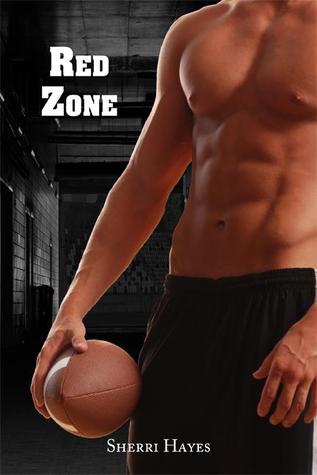As far back as I can remember I’ve been a John Wayne fan. I may have been but a freckle-faced junior with grazes on my knees and dreadfully sensible sandals on my feet but there I was, sitting with my father watching those weekend matinee cowboy films on one of the three TV channels (remember those days?). I recall Dad frequently telling me not to sit so close to the screen – “You’ll make yourself cross-eyed!” Wayne’s embodiment of heroism, strength and honour was, to my young mind, as right and true as any natural law of the universe, something to aspire to so that whatever you did, wherever you went, everything would work out fine as long as you conducted yourself in the same manner. Sure, there’d be hardships along the way and battles to fight but if you’d quit bellyaching, stand firm and face your adversaries head on, you’d triumph in the end and be able to ride off into the sunset with love and righteousness by your side. (Sounds almost biblical, doesn’t it?)
Well, I’m older now (you don’t say!) and, I hope, a little wiser and a little more knowledge about some things in life but when I sit through a Wayne movie my mind just goes right back to those formative years when life seemed simpler, when love and honour seemed to truly mean everything and when a man was only as good as his word.
Hand on heart, I can say that I’ve watched pretty much all of John Wayne’s films – certainly those of which came after Stagecoach in 1939 and with equal sincerity, I can attest to having enjoyed them all. To me, he’s just so watchable. However, when it comes to truly great pictures, classic films, I have to concede that he made but a handful. And yet that’s okay because let’s face it, any artist, be they an author or a painter or an actor, if they leave even just one shining example of their craft – one book, one painting masterpiece or one performance that is unmatched or unquestionable in its brilliance, then they’ve hit the jackpot. They’ll inspire generations and live on forever. Wayne did just that – some might say with the help of a great director but as I’ve said before in these pages, sometimes in the movies, the stars in the heavens align, the talents of cast and crew come together in total harmony and perfection is created.
For Wayne this is clearly evident in The Searchers, She Wore a Yellow Ribbon and Red River. Three superb films directed by two of Hollywood’s greatest movie makers – John Ford and Howard Hawks – with performances from the Duke that should be ranked as highly as any performance by any actor, ever! There are a few other titles that could arguably join this group – True Grit (for which Wayne won the Oscar for Best Actor), Rio Bravo and The Shootist (his last and most poignant performance) and I cannot omit The Quiet Man. If you’ve only seen Wayne wearing a gun-belt or brandishing a Winchester, then this is a bit of a departure but it is an absolute GEM. If you’ve never seen it, I urge you to do so. It’s beyond beautiful, it’s funny, moving and utterly charming. And it’s the sort of film that would not, nay, could not be made today. No matter how overused it is, the aphorism is true – they just don’t make ’em like they used to. Yes, modern cinema had gained much with its CGI, its new fangled digital cameras and lightning quick editing techniques but along the way something has been lost. If you’re into great movies, you’ll know what I mean.
Anyway – The Quiet Man. Wayne plays Sean Thornton, an Irishman by birth who returns from 1920s America to his childhood home with the intention of settling down. He’s also running away from something in his past. He meets and falls in love with the beautiful but feisty Mary Kate Danagher (played by the incredibly lovely Maureen O’Hara). Unfortunately, she happens to be the younger sister of local squire and ill-tempered bully Will Danagher (a role that suited the hulking Victor McLaglen to a tee). Sean’s attempts to court Mary Kate are met with stiff resistance from her brother however, with the help of the friendly locals – an impossibly loveable bunch of village stereotypes – the romance gets a leg up (so to speak). Sean’s romance of Mary Kate forms the main plot of the movie but there’s an intriguing undercurrent because the past that Sean was hoping to leave behind in America returns to haunt him.
The script was based on a 1933 Saturday Evening Post short story by Irish novelist Maurice Walsh. Apparently director John Ford read the story and soon after bought the rights for $10. Republic Pictures, the studio through which the film was made, was known mostly for low budget B-movies and considered The Quiet Man to be a big risk with Wayne and Ford stepping away from their usual genre of the western. They only agreed to finance it if Wayne and O’Hara and Ford agreed to film a western with them first, which they did. Rio Grande was that western. The studio needn’t have worried though because The Quiet Man was a commercial and critical hit upon release and it went on to become the first and only time the studio received an Oscar nomination for Best Picture.
The Quiet Man would go on to win two Oscars out of seven nominations, one for Ford’s directing, the other for Winton C. Hoch’s cinematography. All of the outdoor scenes were shot in various locations around County Mayo and County Galway in Ireland throughout the early summer of 1951and Hoch used his lens to capture the vivid green beauty of the countryside like Constable used his paintbrush. It’s just lovely. Many of these locations have since become tourist attractions and the pub used in the film (though it had been a shop at the time of filming) hosts daily reruns of the film on DVD! The production employed many actors from the Irish theatre as well as extras from the surrounding countryside and the film is one of the few Hollywood movies in which the Irish Gaelic language can be heard.
Wayne’s performance as the stranger in a strange land is well judged. The little town of Innisfree, its people and their customs are a far cry from the world his Sean Thorton has left behind. Wayne doesn’t do peaceful and quiet very often in his films so it’s great to see him in something with a gentler pace but he still bellows his authority when he has to. The chemistry he shares onscreen with Maureen O’Hara is something special too. They must have adored working together because it shows in their performances and it’s no surprise to note that they would go on to make a total of five films together. As always, O’Hara is just wonderful, portraying innocence and youth, romance and passion like few are able. The other main characters are played by some of John Ford’s regulars – Victor McLaglan, Ward Bond and Barry Fitzgerald. The latter is absolutely hilarious as the cheeky Michaeleen Oge Flynn who likes a drop o’ whiskey every now and then. The music by Victor Young compliments the picture perfectly – frequently romantic and cheerful and at times wonderfully cheeky but always keeping that Gaelic heart. At a certain point in the film, Michaeleen begins humming a catchy little melody called “The Rakes of Mallow” and if you’re anything like me, you’ll be humming the tune yourself as he credits role.




